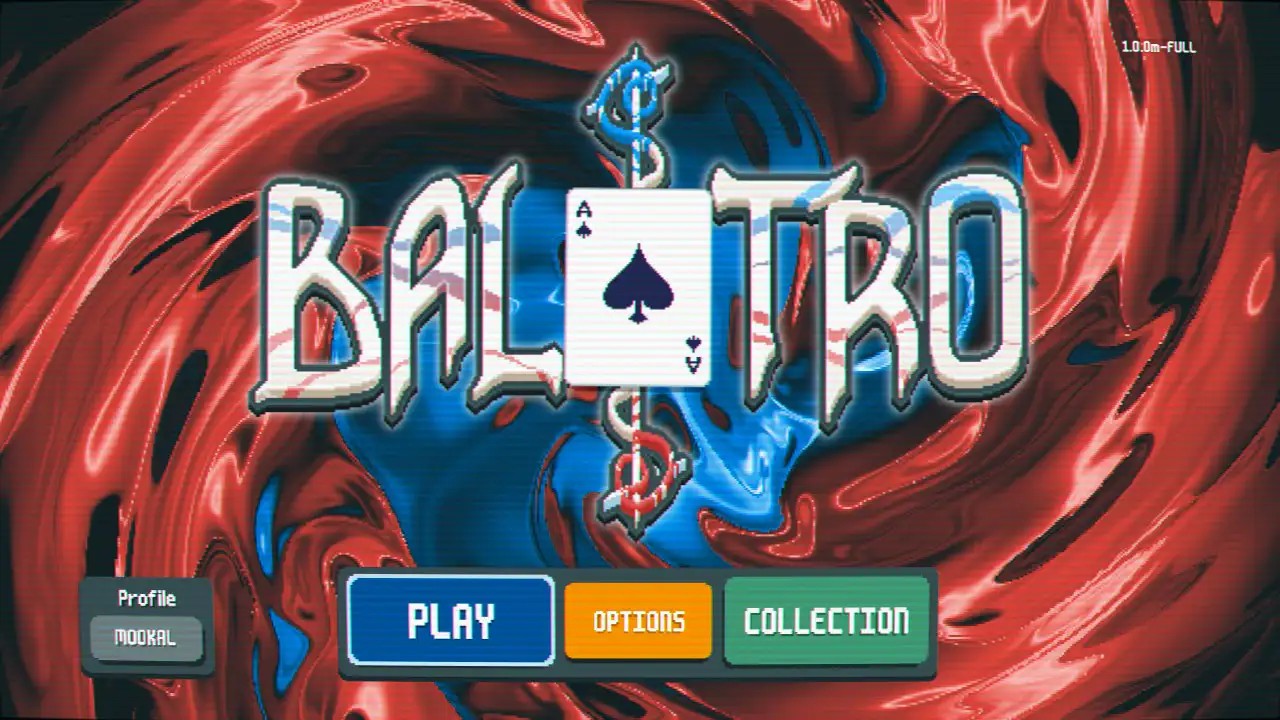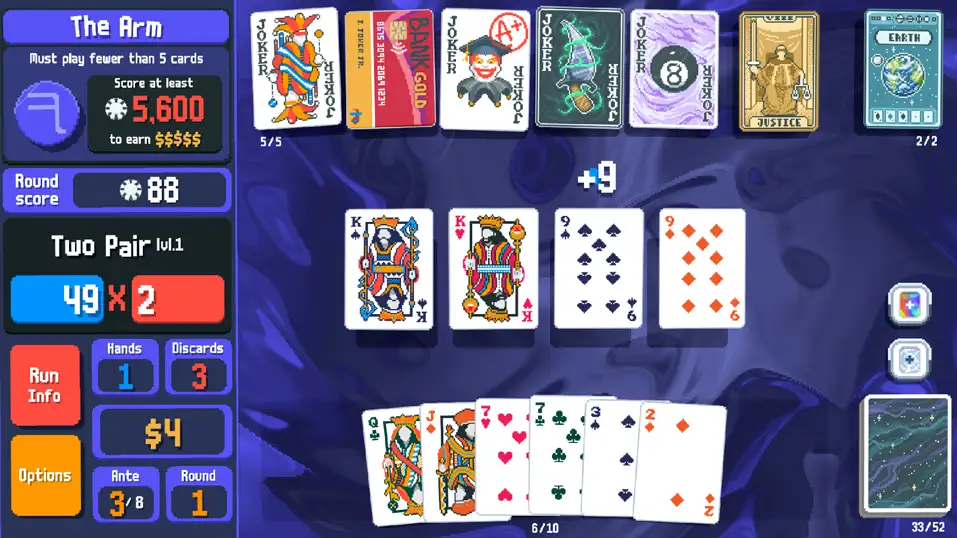Balatro: A Deckbuilder for People Who Hate Deckbuilders
Published on Mar 13, 2024

I'm not really a deckbuilder guy.
I had a brief stint with Magic the Gathering in college, but I didn't play a ton. I really just liked the idea of having some cool-looking cards to perform a weird little gaming ritual with, and I bounced once I realized what an absolute racket it was.
In the digital realm, I don't really gel with these kinds of games either. I've never been drawn to the immensely popular Slay the Spire. I played a bit of Klei's Griftlands a few years back, and found out that Klei can, in fact, make a game I don't like.
I'm just not interested in reading a small novel's worth of text per card and divining the esoteric ways in which they would optimally synergize. It makes my eyes glaze over, my brain just doesn't work that way.
Which is why I was so surprised back in 2021, when Inscryption really hit for me. I finally felt like I thought I would feel playing Magic, or any number of other TCG/CCGs.
I didn't realize why until I played Balatro, and had to once again figure out why a roguelike deckbuilder was hitting for me.
Balatro came out earlier this year, and instantly blew up. There were pieces about Balatro everywhere. People were streaming Balatro. People were Balatroposting.
After catching a stream, and being charmed by the game's pixel art and CRT aesthetics, I decided to pick it up on Switch. And now I, too, have fallen down a Balatro hole.

The mechanics of Balatro can more or less be boiled down to "poker solitaire." You start with a deck of 52 normal playing cards. Four suits, numbers 2–10, face cards, aces, the works.
The aim of the game is to play your way through a series of increasingly difficult rounds, called "blinds," by simply playing poker hands (Pair, Two Pair, Three of a Kind, etc), and racking up points to meet or exceed a target number of points.
This is a beautifully simple foundation to start from; satisfying and addictive in its own right. Then Balatro complicates things, and it becomes a video game.
Each blind ups the challenge by giving you a higher target score to hit. Every third blind is a "Boss Blind" that comes with some extra rule like, "Heart cards don't score this round," or "You can only play one type of hand." You're never going to hit those moving targets without beefing your cards or some other kind of advantage. This is where the modifiers come in.
After each blind, you win some cash, and a shop pops up. You can open packs of cards to add to your deck (here's the deckbuilding part) — some cards might have special abilities like earning extra points or an increased multiplier when played — there are tarot cards that can add effects to your existing cards or trigger other abilities, there are celestial cards that increase the base point values of certain poker hands, and much, much more.
But the name of the game in Balatro is Jokers. Literally, actually, "balatro" is latin for jester, fool, or joker.
Alongside your deck, you have space for up to five Jokers (usually, but that's not important here). Joker cards carry modifiers that trigger under various criteria to boost your scoring ability. As your run progresses, you gradually pick up more and more of these modifiers that let you slowly but surely break the game in your favor.
I had a run where I kept pulling cards that let me beef up Two Pair, so I made a bunch of strategic choices that let me just keep playing Two Pair to rack up a ridiculous amount of points. It was sick. I still lost, but it was sick.
Now wait a minute.
You might be thinking that all of this is starting to sound a bit complex, a bit like a roguelike deckbuilder. All these rules and card types and modifiers and multipliers and such.
But that's not the case at all. Because under the hood, it's all still just poker. Your deck is just playing cards.
The modifiers are all things like, "spades score higher," or "even numbers score higher," or "your multiplier increases when you discard." There are some more complex examples, but you never have to keep more in your head than poker and playing cards. And maybe some math, though honestly not really.
This is how Balatro got me, and how I suspect it's getting a lot of people. Basing the game on concepts that a lot of people will already have prior knowledge of lowers the barrier to entry massively.
I'm not going to understand cards that say shit like, "tap 1 land card to put 4 gremlin tokens on your gremlin mage, and then when he has 8 gremlin tokens, you can spend 6 gremlin tokens to untap 1 land card, unless Derek the Unholy is on the field, in which case—" stop it. I'm not a scientician over here.
3 of Clubs, I understand. "Threes give you more points now," I understand. There's a Joker card called "Ten Four" that, you guessed it, makes Fours and Tens score more points. It has a picture of a walkie-talkie on it. That's fun stuff.

Having Balatro as a second data point made me think back and re-analyze why I got along so well with Inscryption, a game that pretty explicitly models itself after Magic the Gathering.
It has creatures with attack and health points, it has card abilities like flying and deathtouch, it has sacrificing weaker creatures for stronger ones. That's Magic, baby! Or Yu-Gi-Oh, or Pokemon, or any other trading card game you want to compare it to. Why did I get drawn into Inscryption like I've gotten drawn into Balatro?
It all comes down to simplicity for me. Inscryption boils Magic down to its purest form, eschewing all the card text and esoteric conditions, and sticking to "big monster beats little monster," plus a few other easy-to-remember rules that can be communicated through simple symbols.
From there, it starts riffing with fun modifiers and mechanics that let you slowly but surely break the game in your favor. It's not about creating the most efficient, optimal combination of cards and abilities. It's about using the simple tools around you to build a perpetual motion machine strong enough to kill god. Which is to say, "Me make number go up."
This flavor of extremely simplified rouguelike deckbuilder is, so far, right up my alley. Balatro, in making one of these out of playing cards and poker hands, might just be the holy grail.